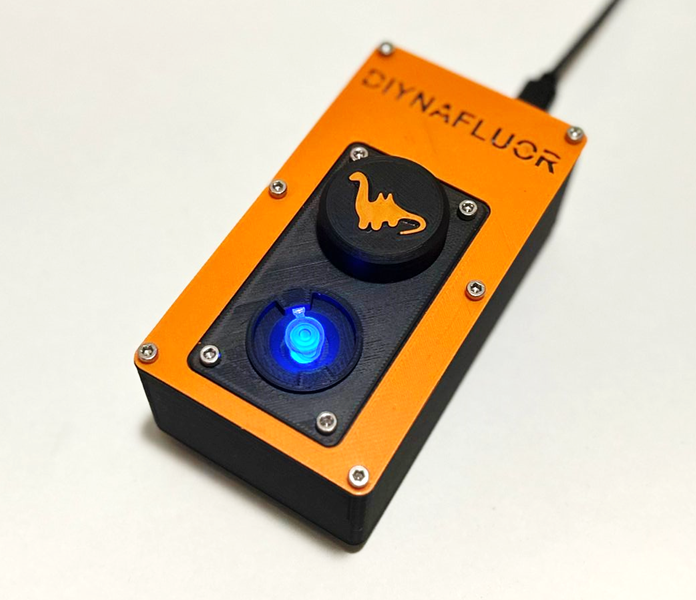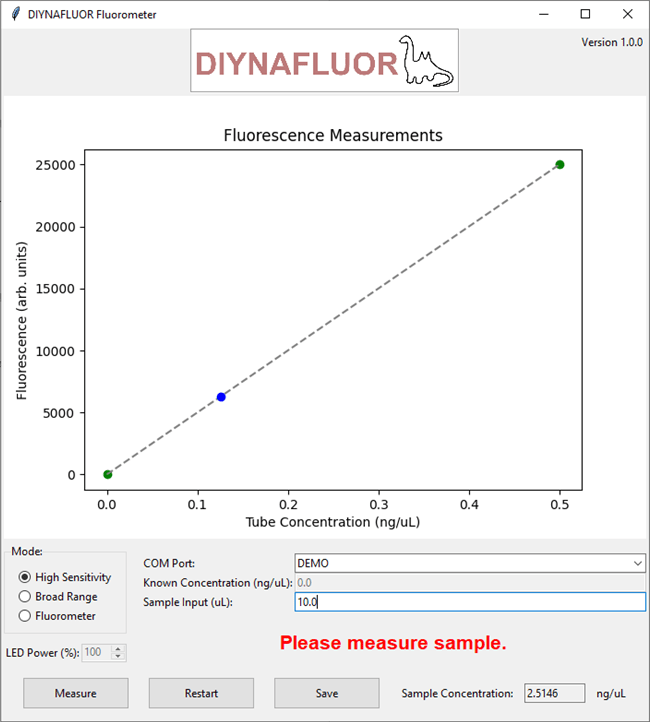
Lab equipment is — traditionally at least — tremendously expensive. While there are understandable reasons for those costs, they are prohibitive to anyone operating outside of a university or corporate lab. But as the “citizen science” movement has grown, we’ve seen more and more open-source and affordable designs for lab equipment hitting the internet. The latest will be interesting to anyone who wants to do work with DNA or RNA: the DIYNAFLUOR.
DINYAFLUOR stands for “DIY Nucleic Acid Fluorometer,” which describes this device’s function. A fluorometer is a piece of equipment the measures the amount of light emitted by anything that fluoresces. In this context, that would be a reagent that increases in fluorescence when it comes into contact with the nucleic acid in DNA or RNA. The more light the fluorometer detects, the more nucleic acid is present in the sample. Sensitivity is important, which is part of the reason that fluorometers are expensive (usually several thousand dollars for basic models).
The DIYNAFLUOR, on the other hand, only costs about $40 to build. It works with both custom and commercially made fluorescent DNA quantification kits and can measure DNA on the scale of nano-micrograms.

This is affordable because its designers built it around off-the-shelf components that are easy to source and a 3D-printable enclosure. The primary component is an Arduino UNO Rev3 board, which looks at the sample through a TSL2591-based light sensor. An LED puts out 470nm light to excite the reagent and optical filters remove the unwanted wavelengths. User-friendly software with a simple GUI lets citizen scientists take measurements and record data directly to their computers.
This may be a specialized device with narrow appeal. But for those who want to work with DNA or RNA outside of a “real” lab, the cost and performance of DIYNAFLUOR is unbeatable.
The post Does your sample contain DNA or RNA? DIYNAFLUOR can tell you on a budget appeared first on Arduino Blog.
